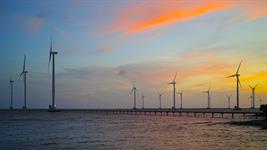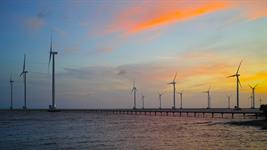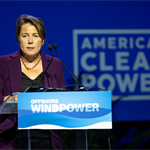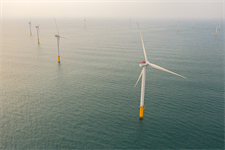Ørsted plans multi-gigawatt offshore wind off Vietnam
Energy Disrupter

Danish developer Ørsted is teaming up with a Vietnamese conglomerate to work together on a multi-gigawatt offshore wind pipeline.
Ørsted will work with T&T Group, which has experience of developing onshore wind and solar PV projects in Vietnam.
They plan to develop projects off Binh Thuan and Ninh Thuan provinces in the south-east of the country.
The Danish developer described Vietnam as having “some of the best conditions for developing offshore wind in Asia”, noting its 3,200km-plus coastline, as well as high and consistent wind speeds.
It also stated that Vietnam has a rapidly growing demand for power, which could be met with offshore wind.
Ørsted’s chief commercial officer Martin Neuber said: “Ørsted targets 30GW of offshore wind by 2030. To support this ambitious build-out, we need to work closely with partners such as T&T, who have an impressive track record of developing large energy projects in Vietnam, and who bring a deep understanding of the market.”
Vietnam’s first large-scale offshore wind farms are not likely to be connected to the grid until 2026 or later.
However, the country’s current feed-in tariff mechanism for both intertidal offshore wind farms and onshore wind farms is due to expire in November 2021.
The Global Wind Energy Council (GWEC) has previously warned that the uncertainty about what will take its place jeopardises the pipeline of investment and project development.
Projects at risk
Earlier today, GWEC also warned that without an extension to Vietnam’s current feed-in tariff deadline of 1 November, about 4GW of onshore wind projects may be ineligible for support.
This would harm the projects’ financial viability, and further jeopardise about $6.7 billion of planned investment and more than 20,000 jobs.
Developers in Vietnam have faced challenges amid the coronavirus pandemic, including supply chain bottlenecks, complex procedures to bring in international experts, localised lockdowns and a slowdown of processes at ports and customs.
GWEC called for the Vietnamese government to postpone the expiration of the tariff by at least six months to protect the onshore wind pipeline.
















